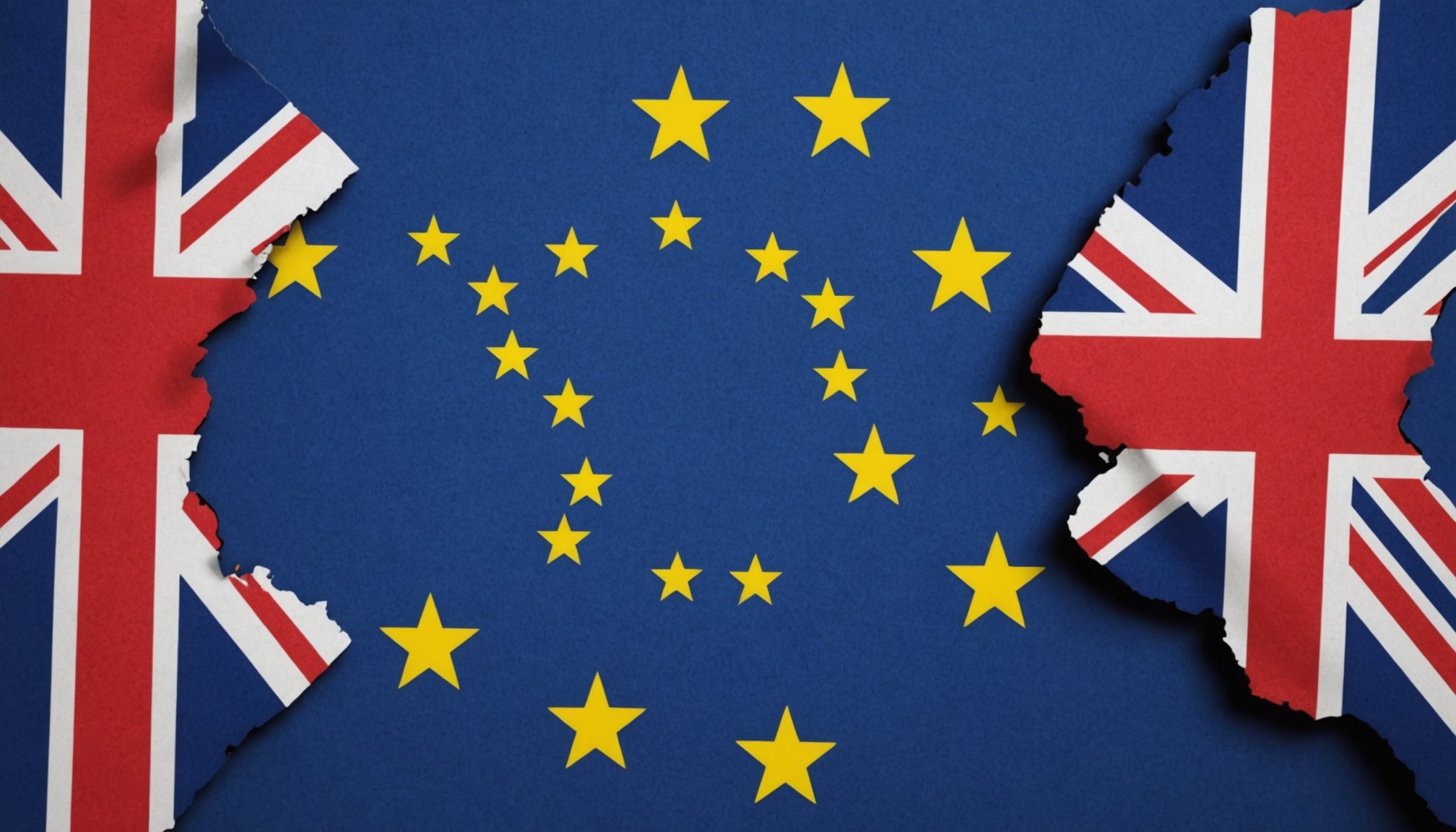Overview of Post-Brexit Legal Landscape
The legal landscape for businesses has significantly evolved in light of Brexit, prompting substantial changes in UK-EU trade relations. Understanding these shifts is crucial for companies aiming to navigate the regulatory environment effectively.
Initially, post-Brexit transformations have led to new legal frameworks governing trade between the UK and EU. Businesses engaging in cross-border transactions must now comply with both UK and EU market entry laws. This dual compliance can be complex, as it requires adherence to separate sets of post-Brexit business regulations.
Have you seen this : Navigating Legal Challenges: Essential Considerations for UK Businesses Using AI in Credit Scoring
Key legislative changes have directly impacted UK businesses, influencing areas such as tariffs, customs, and data protection. Notably, businesses must now deal with varied EU market entry laws, which mandate different procedures than previously required when the UK was an EU member.
Legal compliance has become crucial for market success. Companies must invest in understanding and implementing compliant practices to ensure unhindered market access. Legal frameworks established post-Brexit require businesses to adapt and strategise accordingly, focusing on risk management and regulatory adherence.
In parallel : Essential Legal Considerations for UK Businesses Entering Joint Ventures: A Comprehensive Guide
To summarise, the post-Brexit era has reshaped the business legal landscape, demanding that companies be diligent about compliance to maintain smooth trading operations with the EU.
Compliance Regulations for UK Businesses
Navigating compliance regulations can be daunting, especially in the evolving landscape of post-Brexit trade. Ensuring legal compliance with EU standards is crucial for UK businesses looking to maintain seamless operations.
Before Brexit, UK products adhered closely to EU compliance requirements, streamlining market access across member states. They ensured products met safety, environmental, and technical standards. Adhering to these EU standards was often a straightforward process, involving alignment with uniform regulations.
Post-Brexit, however, the regulatory landscape has shifted. UK businesses must now discern between UK and EU rules, a task that can be cumbersome. For example, UK products exported to the EU must comply with EU-specific regulations, whilst products sold domestically or to non-EU countries might follow different UK-specific regulations. This dual regulatory framework demands increased diligence from UK businesses.
To maintain ongoing compliance, UK businesses should adopt strategies like:
- Regularly updating compliance processes to reflect current EU standards and domestic regulations.
- Leveraging technology to track changes in compliance regulations efficiently.
- Investing in training for staff on evolving regulatory requirements.
Staying informed on the nuances of legal compliance enables businesses to flourish in a dynamic economic climate. Identifying potential compliance challenges early helps in implementing proactive solutions, ensuring continued success and market access.
Trade Agreements and Their Implications
Delving into the Trade and Cooperation Agreement reveals significant effects on the economic landscape. This pivotal agreement defines the modern relationship between the UK and the EU, governing market access and establishing rules in various sectors, creating a framework aimed at easing the complexities of international trade.
The presence of tariffs and quotas remains a crucial aspect for consideration. For UK exports, these constraints can sometimes lead to increased costs and competitive disadvantages in EU markets. For instance, quotas limit the volume of goods that can be exported tariff-free, while tariffs can add financial burdens on top of production expenses, affecting overall profitability.
Furthermore, as new UK-EU trade deals emerge, potential impacts warrant careful observation. Negotiations might expand or redefine current agreements, potentially benefiting industries that have suffered since previous implementations. These talks often focus on reducing trade barriers, opening additional market opportunities, and ensuring mutual standards compliance.
Don’t overlook the influence of future market agreements in redefining international commerce. With sustained dialogues, improved conditions for both UK and EU economies are conceivable, potentially fostering stability and growth. Observing these evolving dynamics remains vital for businesses hoping to navigate the changing trade landscape successfully.
Intellectual Property Considerations
Intellectual property (IP) rights are crucial for safeguarding creations of the mind, ranging from inventions to brand names. Navigating changes in intellectual property protections requires a keen understanding of current IP laws. With the UK’s departure from the EU, it’s vital to comprehend how protections have adapted on both sides.
For businesses engaging with European markets, understanding the registration processes for trademarks and patents in the EU can be daunting. Trademark registration typically requires applicants to ensure their mark is distinctive and not too similar to existing ones. This involves searching existing databases and potentially dealing with opposition if similarities arise. The process is detail-oriented, necessitating precision and thorough research.
Protecting digital assets in this new landscape also demands attention. With Brexit, differences may arise in copyright laws that affect digital content. Ensuring compliance involves re-evaluating your copyrights’ status and exploring avenues for additional protection if necessary.
Additionally, consider seeking legal advice to align your strategies with current regulations. This proactive approach helps in maintaining robust IP safeguards amidst evolving legislative frameworks, supporting the secure development and longevity of your intellectual property assets.
Employment Law in the EU Context
Navigating employment law in the EU framework requires an understanding of both the collective EU guidelines and individual country regulations, such as those of the UK. A notable aspect of this legal landscape is how UK employment regulations differ from those of the broader EU. The UK, post-Brexit, retains several similarities with EU rules; however, differences, particularly in areas like holiday entitlements and agency worker rights, are emerging. Employers must stay alert to these variations to maintain compliance.
In terms of employee rights within the EU, there is a significant emphasis on workforce protection. EU directives prioritise workforce rights, such as fair working conditions, non-discrimination, and employee health and safety. This robust framework aims to ensure employees receive a high standard of treatment and ample protections across member states.
When hiring and managing a workforce across these jurisdictions, businesses must consider these diverse legal requirements. It’s essential to develop a comprehensive understanding of both local and EU rules to make informed decisions. Workforce management strategies should include adherence to employment contract regulations, rights to parental leave, and equality legislation, ensuring a fair and legal work environment for all employees.
Tax Implications for UK Businesses Entering the EU
When UK businesses seek to enter the EU market, understanding tax implications is crucial. VAT regulations play a significant role, encompassing numerous compliance requirements. The EU VAT system is based on a destination principle, meaning VAT is payable in the country where the consumer is located. Thus, businesses must register for VAT in each EU member state they operate in, complicating compliance.
Beyond VAT, cross-border taxation introduces further complexities. Customs duties vary based on the origin and destination of goods. Effective management of these duties involves understanding the EU’s Common Customs Tariff, which affects product pricing and competitiveness.
Regarding corporate tax structures, the EU has diverse corporate tax rates and structures across its member states. Compliance requires meticulous attention to each country’s tax authority guidelines. Furthermore, navigating tax treaties is vital to prevent double taxation, ensuring the same income isn’t taxed both in the UK and EU.
The double taxation treaties are designed to provide relief and define which country has taxing rights over specific types of income. Awareness and proper planning can safeguard business profits from unnecessary tax burdens, fostering smoother EU market entry. Understanding these regulations and accurately forecasting the tax implications can significantly influence a business’s strategic decisions.
Case Studies of Successful Market Entry
The process of navigating market entry can be quite intricate, especially when looking at real-world UK business success stories. Various businesses from the UK that ventured into the EU market provide insightful lessons and strategies that highlight what it takes to succeed. One key example is a small tech company that effectively leveraged its innovative product to carve out its market space, proving that unique offerings can drive success across borders.
Lessons Learned
Some general lessons emerge from these case studies. First, businesses often face common pitfalls, such as underestimating regulatory compliance. Successful firms overcome this by investing time to deeply understand EU regulations and employing local compliance experts. Secondly, adapting to cultural differences is crucial—those who effectively localise their branding and services often thrive.
Strategies for Success
Successful firms also showcase specific strategies that could guide future entrants. Competitive firms often prioritise building strong relationships with local partners who offer logistical and cultural insights. Furthermore, maintaining flexibility and willingness to adapt to unexpected changes enhances their market position. By synthesising these approaches, businesses can develop robust strategies tailored for compliance and adaptation, ensuring long-term success in the market entry journey.
Resources for Legal Consultation
Navigating the intricacies of entering the EU market can be daunting. Fortunately, there are structured legal consultation resources available. A valuable starting point is the directory of legal firms focusing on EU market entry. These firms offer insight into the various legal frameworks that UK businesses must comply with when expanding abroad. Leveraging their expertise can mitigate risks and ensure that companies align with European regulations seamlessly.
In addition to private firms, government resources play a crucial role in supporting businesses. UK governmental bodies provide comprehensive guides and support to help businesses understand and adapt to different legal frameworks in the EU. This guidance can be indispensable for companies unfamiliar with international legal standards.
Online platforms also offer significant resources for businesses seeking legal advice and networking opportunities related to marketplace entry. These digital hubs facilitate connections between businesses and legal experts, providing a platform for queries and consultations. They often feature forums where businesses can discuss challenges and share experiences, fostering a community of shared knowledge.
In summary, a combined approach utilising directories of specialised legal firms, government assistance, and online networking platforms can provide a robust support system for UK businesses aiming to navigate the complexities of EU market entry.











